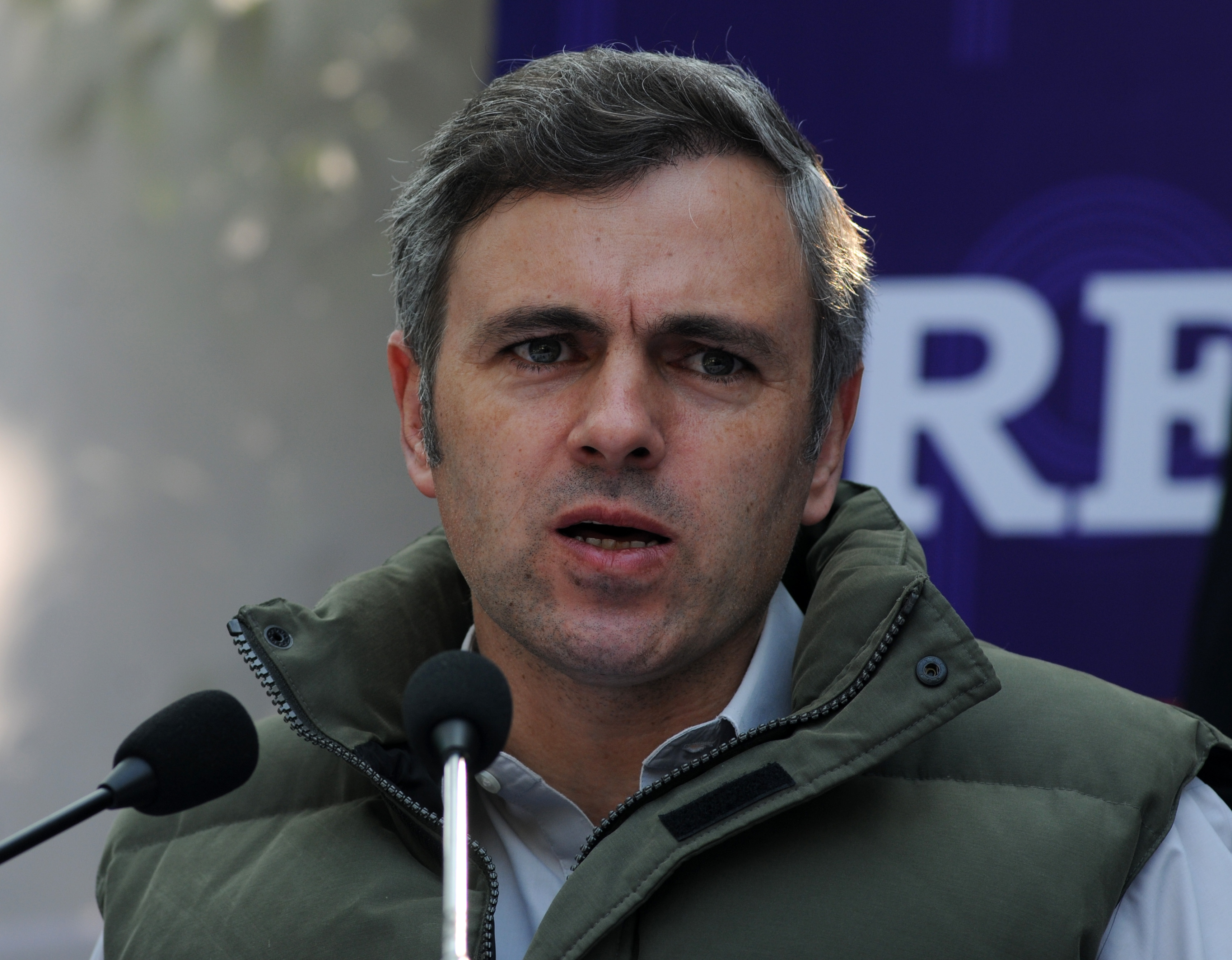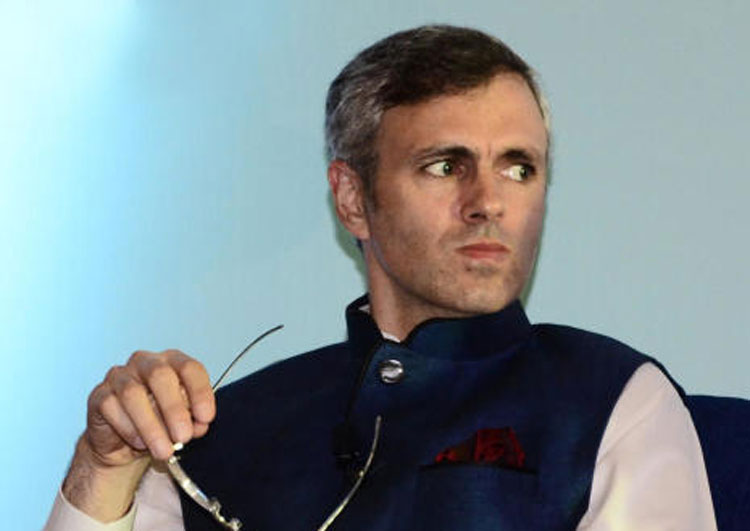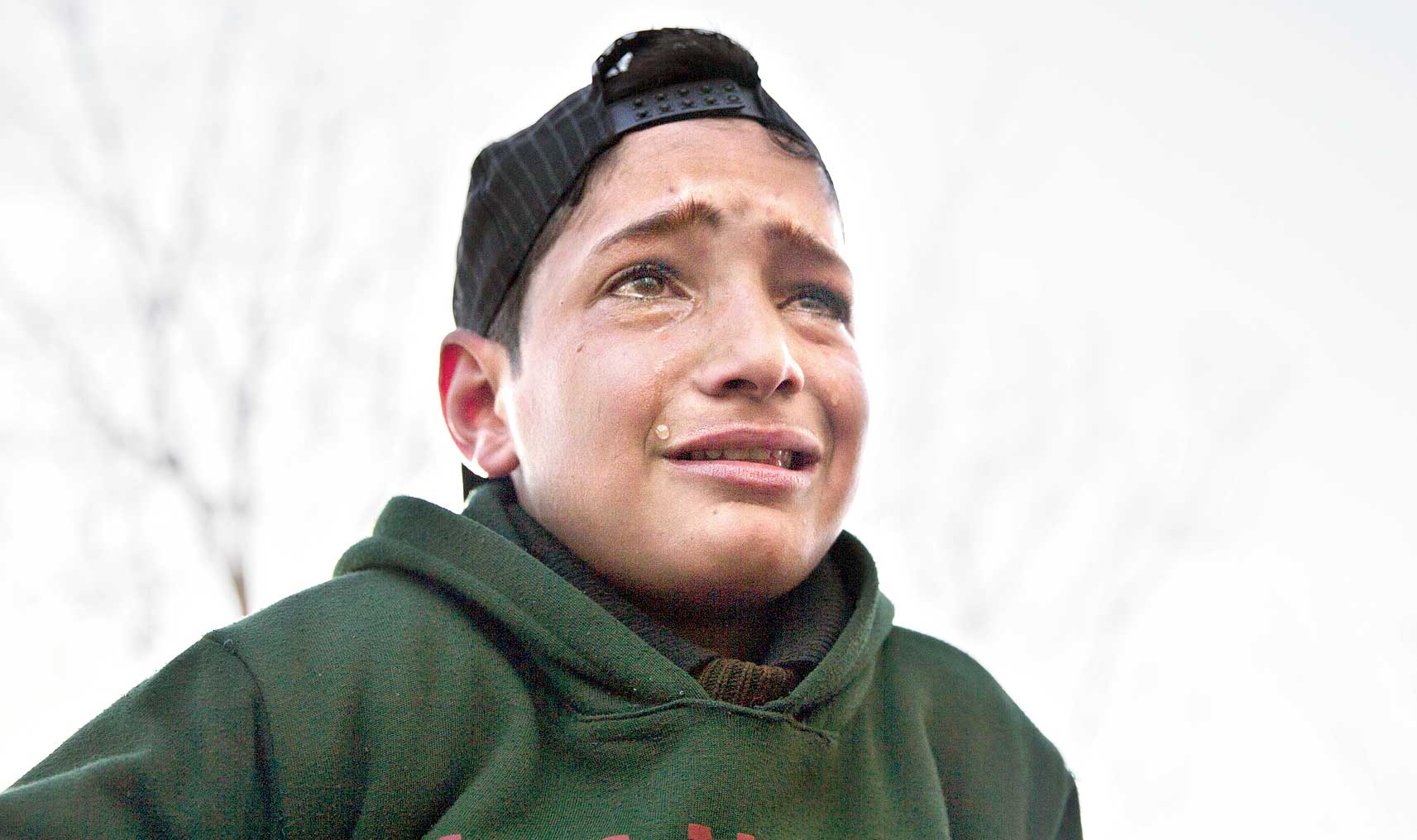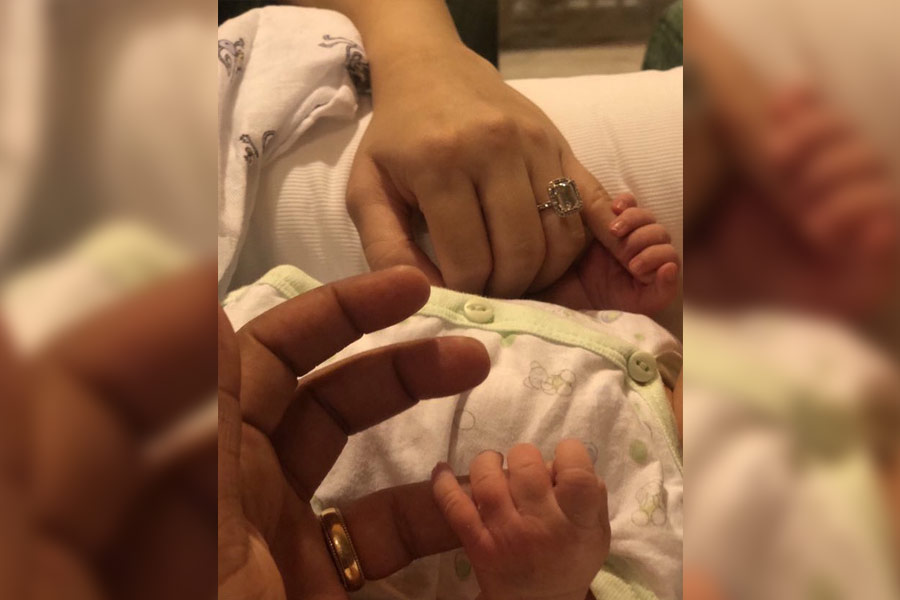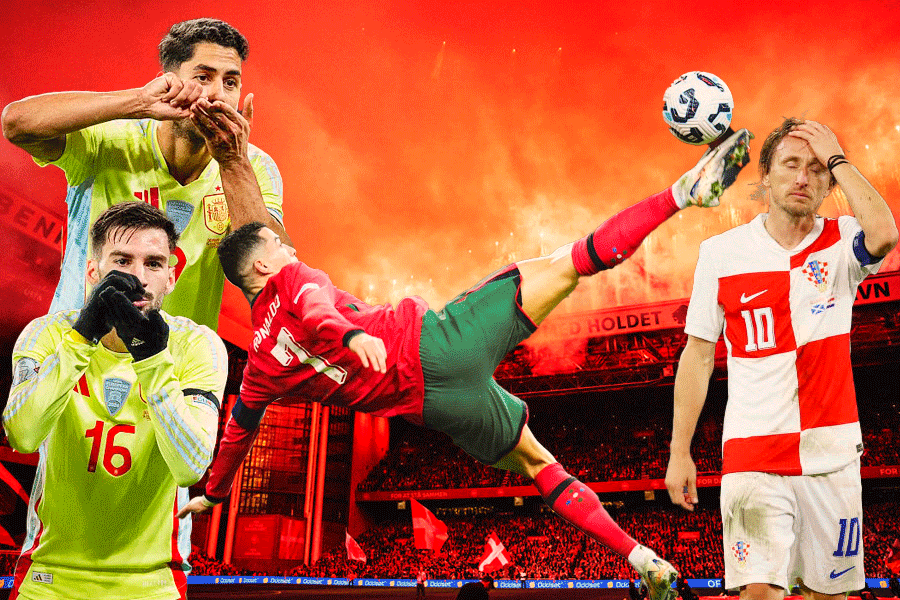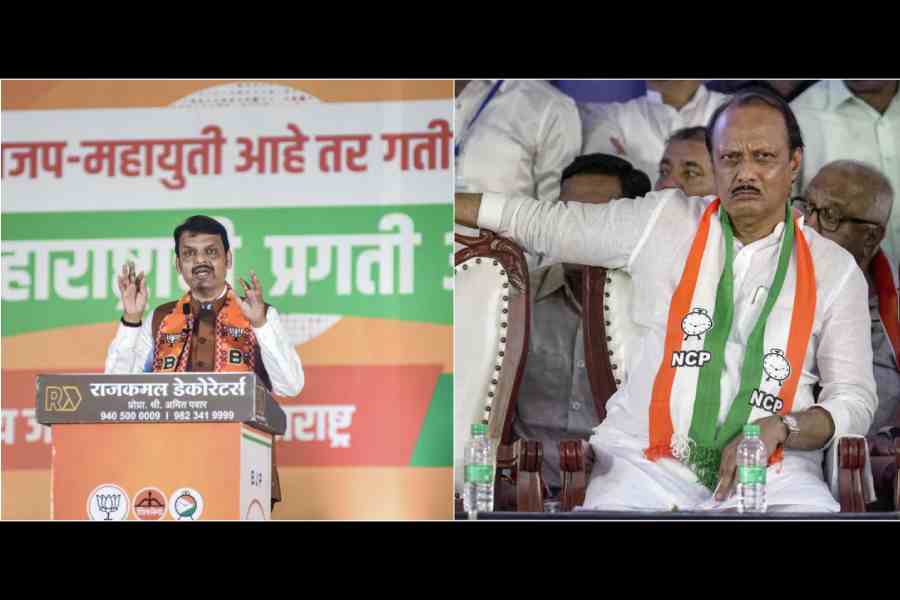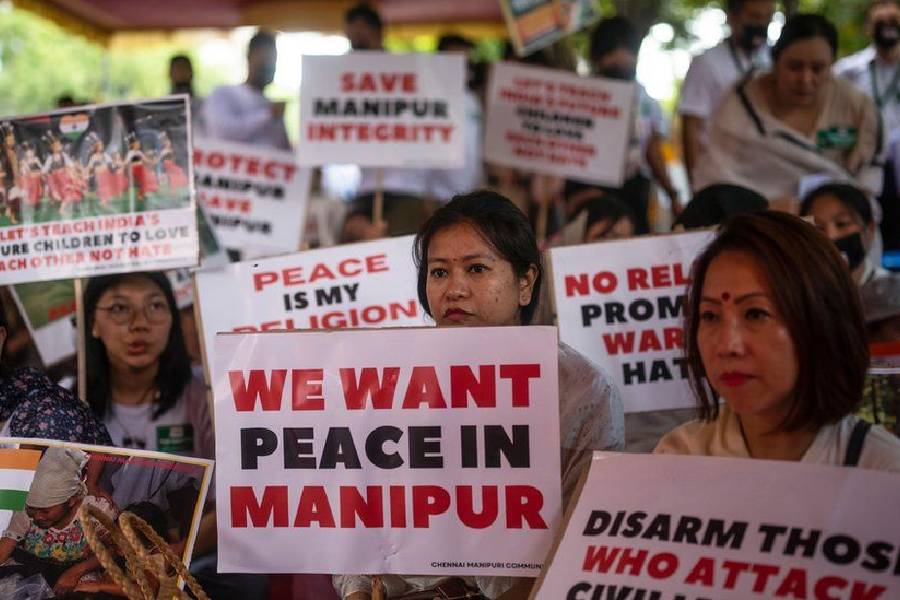Former Jammu and Kashmir chief minister Omar Abdullah on Tuesday drove to the home of an 11-year-old boy, who died during a gunfight after being taken hostage by militants earlier this week, to condole his death.
Omar had earlier censured the “selective outrage” in the Valley to the deaths of Atif Mir, a Class VI student who had been taken hostage by two Lashkar-e-Toiba militants in north Kashmir’s Hajin village, and school principal Riwan Pandit who died in police custody. While Atif’s death raised hardly a murmur, Rizwan’s death evoked a storm of protests.
The NC vice-president tweeted on Tuesday that he had gone to Hajin to condole Atif’s death.
“I wanted to offer my condolences in person because I find when deaths happen at the hands of the security forces… then everybody seems to rally around the families and raise their voice against the incident,” Omar later told The Telegraph.
“But when somebody dies at the hands of militants or somebody is taken hostage like this and loses his life — and in this case the tragedy is compounded by the fact that this fellow was only 11 years old and was in the sixth standard — somehow our anguish, our anger is not as visible as it should be. That is why I felt I wanted to go and offer my condolences,” he added.
The political parties in the Valley, the NC and the PDP, are taking care not to displease the separatists before the April-May Lok Sabha polls. PDP chief Mehbooba Mufti has hit the streets to protest the Centre’s decision to ban the separatist Jamaat-e-Islami.
PDP patron Muzaffar Hussain Baig on Tuesday offered legal help to two proscribed organizations — the Jamaat and the Jammu-Kashmir Liberation Front — to contest the ban, saying that while his party was ideologically opposed to these groups, he would do it to uphold civil liberties.
Omar’s close aide and NC general secretary Ali Mohammad Sagar told a gathering in Baramulla that his outfit was the “original mujahideen party”, echoing Mehbooba who recently said PDP workers were the “real mujahideen”. Mujahideen means holy Islamic warriors and many people in the Valley use the word to refer to militants.
Asked whether his decision to visit Atif’s home was politically correct, Omar said “everything should not be weighed in terms of politics and election”.
He refused to divulge the details of the conversation he had with Atif’s family, saying it was for them to decide whether they wanted to go public.
Some members of Atif’s family had told this newspaper on Saturday that one of the militants had been coercing the family to marry a cousin of Atif off to him and had roughed up several members after learning the girl had been sent away. Apparently, the militants took Atif hostage after suspecting the family had tipped off the security forces.
Omar said there was “evidence of anger and outrage” in the Valley against the circumstances that led to the boy’s death, saying it was not “completely absent”.
“To say (there was no outrage) will be very unfair to those people in the Valley who did raise their voice against what happened…. There were a lot of people who spoke up and spoke very vocally. Please don’t get me wrong and suggest it was completely absent because it wasn’t. (It) may have been muted (compared to) when… the death is at the hands of security forces,” he said.
The NC leader, however, added that the separatist leadership was “selective in condemnation”.

